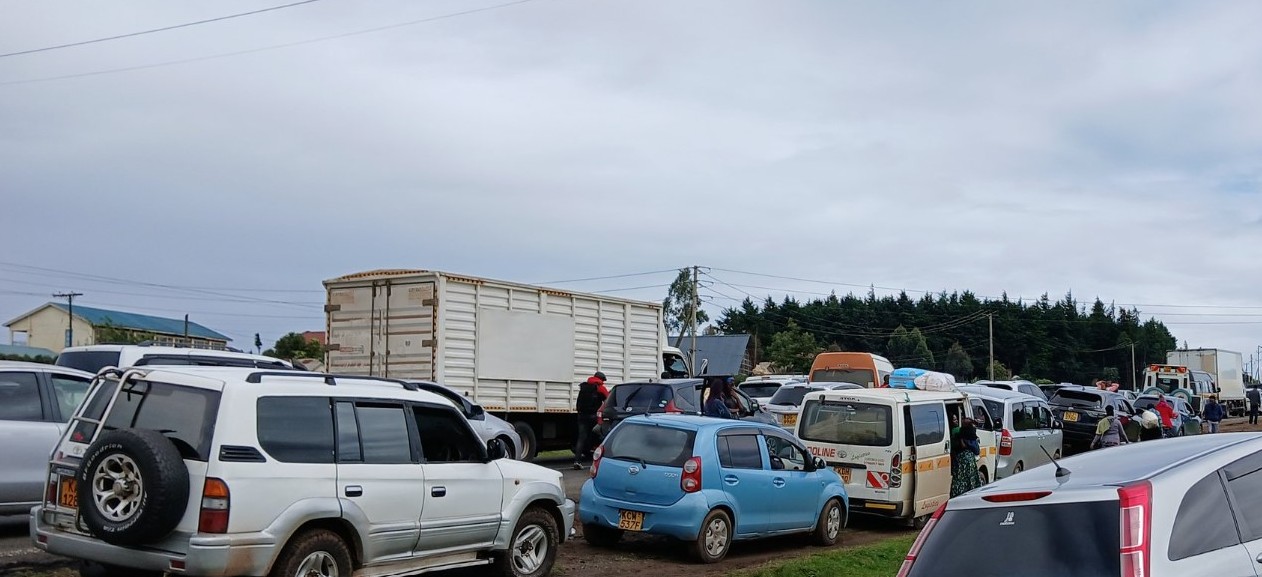Economic hardships, not just high interest rates, driving digital loan defaults among Kenyan youth

Despite their current challenges, most respondents said they do not intend to default permanently, expressing fear of being blacklisted by the Credit Reference Bureau (CRB)—a consequence they are eager to avoid.
A growing number of Kenyans are attributing their default on easily accessible digital loans to tough economic conditions rather than high interest rates.
While elevated borrowing costs remain a concern, various sector reports and a recent survey by The Eastleigh Voice suggest that job losses, shrinking incomes, and the rising cost of living are the main drivers of loan defaults. Many borrowers also cite unexpected expenses and a lack of financial safety nets or savings as contributing factors.
More To Read
- Tax relief boost as KRA slashes fringe benefits rate for workers
- Kenya moves to shield consumers from online market abuses with tough new bill
- CBK: Gaps in digital lending sector fuel risk of money laundering, terror financing
- Loan interest rates drop as CBK moves to scrap risk-based pricing
- Kenya moves closer to crypto regulation as MPs back joint oversight of digital asset sector
- CBK cuts lending rate to 9.75 per cent as inflation eases
The Eastleigh Voice survey, which targeted mostly young people aged between 25 and 35, found that out of at least five respondents, three admitted to currently defaulting on digital loans, representing a 60 per cent default rate within the sample.
Loan amounts reported ranged from as little as Sh1,500 to as much as Sh10,000.
Despite their current challenges, most respondents said they do not intend to default permanently, expressing fear of being blacklisted by the Credit Reference Bureau (CRB)—a consequence they are eager to avoid.
The CRB monitors borrowers’ credit behaviour to help lenders manage the risk of non-performing loans.
According to the law, banks must wait 90 days and mobile lenders 30 days after a repayment deadline before listing a borrower with the CRB. During this window, the borrower must be notified and allowed to settle the debt.
Hospital bill
One of the respondents, George Mwachi, a 27-year-old mechanic in Nairobi, shared that he resorted to a loan from Tala when his wife went into labour and he couldn’t raise enough money for the hospital bill.
“Household provision has become more challenging as I now have three heads to feed on the same income, which is even declining due to diminishing customer numbers,” Mwachi said.
“As much as I do not want to be blacklisted since the loan could be useful again in the near future, my current situation forces me to default.”
He, however, maintains a brave face that he will strive to pay up and avoid getting barred from accessing loans in future, even from other lenders.
“In this situation and economy, I will eventually need the loan again at some point,” he said.
Dennis Amule, a movie shop owner, shares a similar struggle.
“I took out a loan sometime last year from TALA to pay for my subscriptions, and to date, I have not been well enough to comfortably pay it,” Amule said.
Business not doing well
Just like Mwachi, he expresses his commitment to pay before he lands into the blacklist, reckoning that business has not been doing well lately.
Another borrower, Gody Chobe, a boda boda operator, says he borrowed out of necessity.
“I took loans from Tala and Branch for my sibling’s school fees. Now I don’t even know if I’ll be able to repay because things aren’t going well for me,” Chobe said.
As the economic hardships persist, the lending landscape increasingly reflects the broader struggles of borrowers across the country, with default rates among digital credit providers (DCPs) rising to as high as 40 per cent.
Notably, this is more than double the rate recorded by traditional commercial banks, whose default rate currently stands at an average of 17 per cent.
Several reports have pointed fingers at soaring interest rates, which ballooned through most of last year.
Experts have also weighed in on the matter, saying, unlike banks, many digital lenders prioritise rapid disbursement over rigorous credit evaluation, a scenario causing them unsustainable debt cycles.
Others have argued that the ballooning NPLs from DCPs are no surprise.
This is because most of the lending from the digital lenders is toward consumption rather than business development or growth.
The surge in loan defaults means DCPs are facing significant losses, with many of the outstanding amounts at risk of never being recovered.
The Digital Financial Services Association of Kenya (DFSK), sometime early this year, said the digital lenders are now focusing on write-offs of unpaid principal loans this year.
This is with an aim of not only lowering non-performing loans (NPLs) exposure, but also deriving tax benefits from bad debts allowable.
Targeted by criminal networks
As they grapple with the impact of rising non-performing loans (NPLs), the DCPs yet again face the heightened risk of being targeted by criminal networks.
The latest Preventive Measures Survey by the Central Bank of Kenya (CBK) shows DCPs exhibit weaknesses in their capacity to enforce sanctions on risky individuals and firms, which continue to access credit to finance criminal activities.
It notes that targeted financial sanctions (TFS) compliance across DCPs shows encouraging progress but with critical gaps.
TFS refers to restrictive measures imposed by governments or international bodies to freeze or block assets and restrict financial transactions of specific individuals, entities, or groups identified as threats.
“Around 78 per cent of staff are at least somewhat familiar with TFS regulations, yet 22 per cent have no familiarity at all, underscoring a pressing need for improved training and awareness,” the report reads.
When it comes to how often sanctions screening is conducted, over half (55.9 per cent) perform it only “as needed”, while just 23.8 per cent conduct it daily or weekly.
“This irregularity raises concerns about sufficient risk mitigation and regulatory adherence.”
Top Stories Today












































